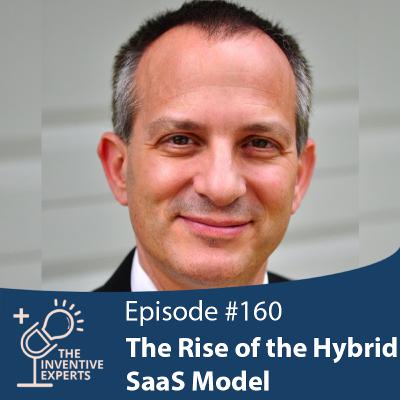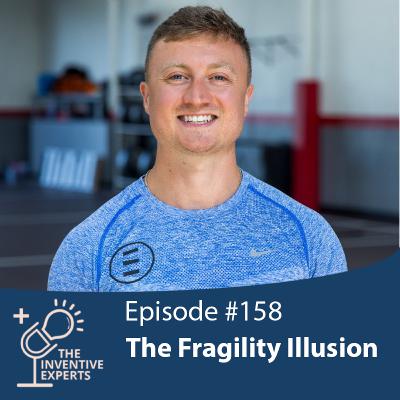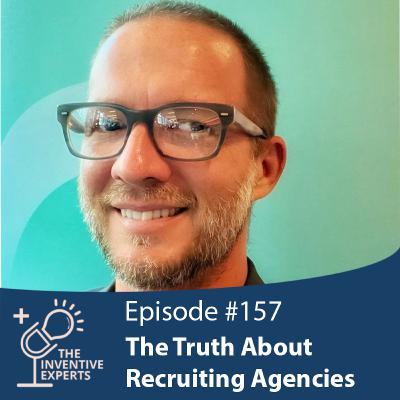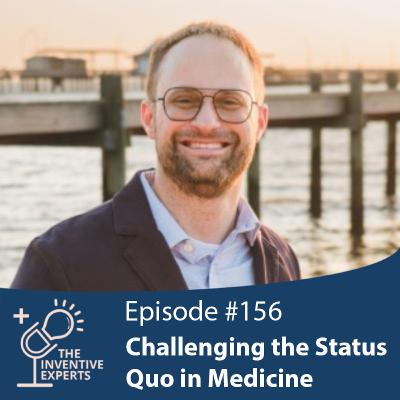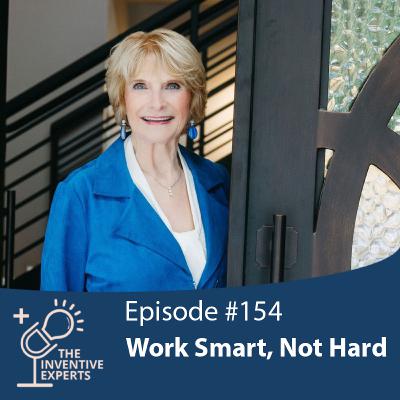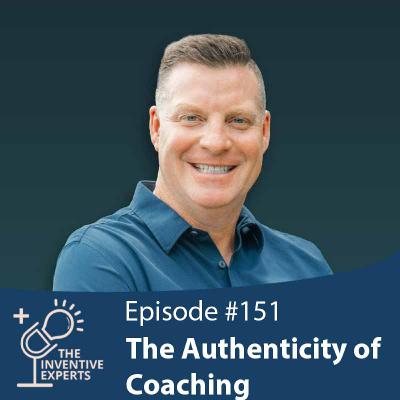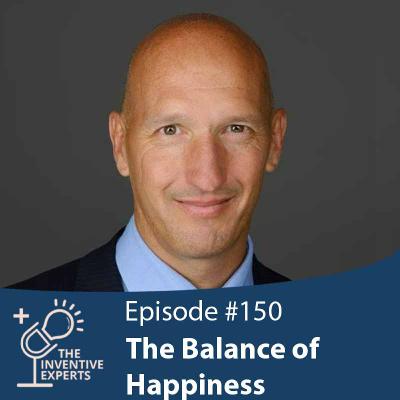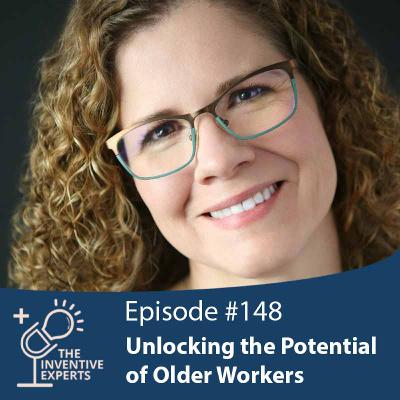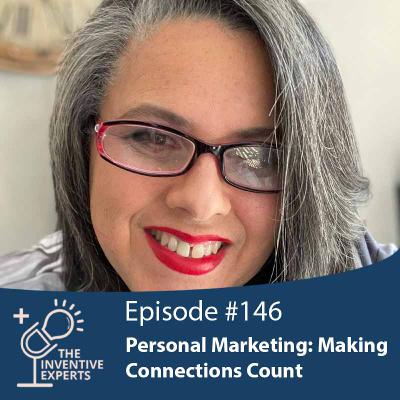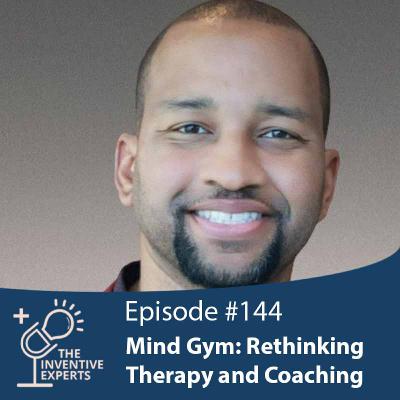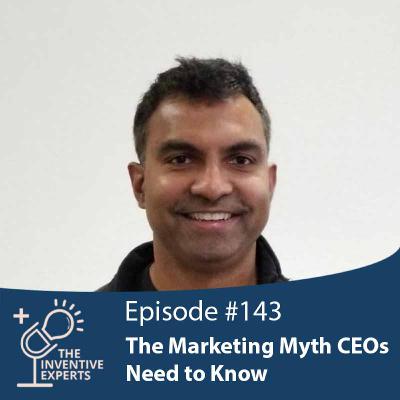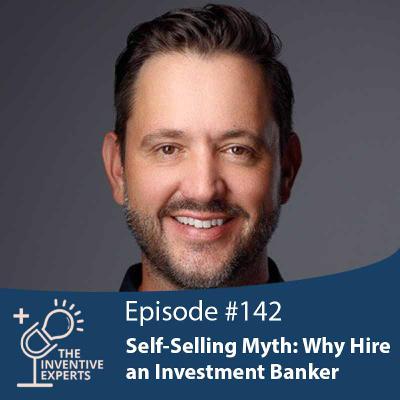Discover Inventive Expert
Inventive Expert

Inventive Expert
Author: Devin @ Miller IP
Subscribed: 0Played: 0Subscribe
Share
© Devin @ Miller IP
Description
The Inventive Expert podcast is a compelling series dedicated to sharing the wisdom and expertise of startup founders and small business owners. Each episode features insightful interviews with industry leaders who discuss their specialized knowledge, strategies for success, and practical tips for navigating the entrepreneurial landscape. Whether you're an aspiring entrepreneur or a seasoned business owner, "Inventive Expert" offers valuable advice and insider perspectives to help you thrive in the competitive world of startups and small businesses.
112 Episodes
Reverse
I wouldn’t say there’s a major myth in the SaaS space, but rather a shift that many are falling behind on. A decade ago, it was all about subscriptions and annual recurring revenue—ARR was everything. But now, we’re seeing a rise in usage-based and transactional revenue models. It’s evolving into what we call the hybrid model. The key is adaptability—being able to adjust to changes in the industry as they unfold, or better yet, anticipate them before they do.
One of the biggest myths I often come across in healthcare innovation is the belief that you can "move fast and break things" and simply fix it later. While that approach might work in other areas of tech, it’s dangerous in healthcare—because breaking things here means real people can get hurt. We’re dealing with real-life situations, complex barriers, and the unpredictable nature of human health. Social determinants, for example, mean patients don’t always fit neatly into clinical models. We can’t just automate decisions based on a diagnosis—we have to use real-world data with care. There’s no reset button in healthcare, so speed cannot come at the cost of responsibility.
The biggest myth is that we are fragile. And honestly, we could go really deep into this, but we don’t even need to — the idea that we're delicate is just wrong. A lot of things stem from this belief. For example, I mentioned chiropractic work earlier. I have many friends who are chiropractors — people I trust, who do great work. But overall, there’s a big misconception: the idea that someone can "crack" you back into alignment, like fixing a car that's out of place. It's as if your back just shifted a little and now it needs to be popped back into the right spot. If that were really the case, it would mean our bodies are basically made of Play-Doh — and that’s just not true.
There are actually two key points I want to address. First, I get this question all the time—do recruiting agencies charge candidates? The answer is no, we don’t. We operate on a two-sided customer service model, ensuring a great experience for both candidates and the businesses that actually pay us.Second, a common myth is that all we do is pull resumes from a database and send them over. In reality, the value of our service comes from our proactive approach. We either actively seek out and engage with top talent for specific roles or leverage our long-term relationships with candidates we’ve worked with over time.
I recently started exploring AI, and there's some fascinating work happening in AI technology within healthcare. I won’t dive into all the details, but one debate I’ve noticed is whether AI will ever replace human therapists. People have strong opinions on this, and personally, I think the answer is yes.The reason I bring this up is that we need to keep innovating and adapting. Medicine has long been seen as a traditional field, resistant to change, but I believe we’re entering an era where that mindset needs to shift. Science isn’t always exact, and we must be willing to evolve. AI is just one example of how progress challenges the status quo, and we need to embrace that change. The real myth is thinking that the way things have always been done is always the best way forward.
One of the biggest myths people have is that you need a lot of money to start, or that your passion has to be constant. From my experience in the nonprofit world, I started with something simple. I knew I wouldn’t get many donations at first and that I’d have to personally reach out to people I cared about to convince them to support my cause. But balance is key. While I’m deeply passionate about my mission, I can’t let it consume my entire life. It’s important to find a balance between growing your passion and taking care of yourself—self-care and overall wellness matter just as much.
In the world of business growth and entrepreneurial success, one of the most common myths is that entrepreneurs must work around the clock, hustling 24/7, putting in endless hours, and becoming a slave to their business for it to thrive. This belief is simply not true. It’s a classic example of working hard rather than working smart. The key to true success lies in working smarter, which actually reduces the time required. This is where strategies like leveraging systems, building effective teams, fostering a strong culture, and implementing performance tracking come into play. These tools allow entrepreneurs to focus on working on their business rather than being trapped in it, freeing up their time while still driving sustainable growth.
The common myth is that you must always follow the data, and while there’s some truth to that, I believe it’s important to first conduct a thorough audit of the data. You need to understand what the data is really telling you, how complete it is, how clean it is, and how well it connects to the broader picture before taking action. In the nonprofit sector, I often see decisions being made based on incomplete data because it’s all that can be tracked. For instance, I recently worked with a client who was about to make significant changes to their marketing strategy based solely on the data they pulled from their CRM, without considering the bigger picture.
In IT consulting, and perhaps in IT leadership overall, there's a prevailing myth that business and industry expertise isn't all that crucial. The belief often is that best practices, proven frameworks, and methodologies—applied across various industries—are sufficient for setting up infrastructure, security, and data systems. However, I believe it’s a misconception to overlook the value of deep industry knowledge and experience. Understanding the specifics of an industry can play a significant role in shaping effective, tailored solutions.
In the coaching world, being a great marketer doesn’t automatically make someone a great coach. It frustrates me to see so-called experts urging others to take steps they’ve never taken themselves. For instance, I recently met three relationship coaches who weren’t even in relationships, yet they were advising others on how to navigate them. That just doesn’t make sense to me. I’m passionate about coaching and believe it’s valuable, but I encourage people to dig into the backgrounds of their coaches. I can confidently discuss helping businesses because I’ve built and sold three of my own; I’m not asking anyone to do anything I haven’t done myself. While this might just be a pet peeve of mine, I think it’s an important consideration.
It’s about the pursuit of happiness, which ties back to the point we discussed earlier about unrealistic expectations. Society often suggests that we should always be happy, but constant happiness can actually have downsides. When we focus solely on being happy, we risk becoming complacent, losing our sense of purpose, and devaluing meaningful experiences. While happiness is valuable, it shouldn’t be our only goal. Fleeting moments of joy are important, but striving to be perpetually happy is unrealistic and sets us up for disappointment. It's essential to recognize that having unrealistic expectations for ourselves and others can hinder our growth and fulfillment.
As an entrepreneur, I believe the idealism surrounding entrepreneurship can be quite misleading. Many people envision it as a dream job where they're constantly doing what they love and everything is perfect. While it is incredibly fulfilling to build and create something of your own, it also demands a lot of hard work and sacrifice. Not everyone is cut out for entrepreneurship; it requires a willingness to take risks and the courage to try new things, even if failure is a possibility.
Be cautious about striving for perfection. It's often more beneficial to focus on progress and keep moving forward rather than waiting for everything to be perfect. Perfection can actually become an obstacle. Instead, aim for things to work well enough and be ready to adapt as you go. The goal isn't perfection; it's about understanding how to pivot and adjust along the way. Chasing perfection can leave you stuck in planning mode instead of taking action.
I believe the biggest misconception is that older workers won't add value to your business. The idea that they are too slow, too expensive, or too set in their ways is simply not true. These stereotypes, like being too cranky or inflexible, are myths. Research increasingly demonstrates the numerous benefits of employing older workers. Therefore, exploring their potential contribution to your business or company is a wise investment.
One of the most prevalent myths in our industry revolves around the idea that having a mentor, a business partner, or even discussing your business with your spouse or a close friend renders the need for a business coach unnecessary. I recall being confronted with this notion years ago during an interview when I was running my own company and utilizing a business coach. Initially, I grappled with the question because, at the time, I didn't have a business partner. However, with time and experience, I've come to realize the immense value a business coach brings, regardless of other support systems in place. Having now been on both ends of the spectrum, I can attest that a business coach offers unique insights and guidance that extend beyond ordinary conversations.
Isn't there just something special about good old-fashioned, face-to-face marketing? If you're not actively engaging in networking, tapping into your local chambers, attending networking events, or joining either closed or open networking groups where you can connect—whether it's on a monthly or weekly basis—then you're really missing out on opportunities for your business. After all, people tend to do business with those they know and trust. And how can they get to like and trust you if they haven't had the chance to get to know you? At the heart of it all, building relationships is key. And that starts with putting yourself or your product out there, directly in front of people. Whether it's your own presence or something you've crafted, being visible is essential to making sales.
I think the biggest myth is that profit margins in this industry are huge. In reality, contacts are very expensive. Many people spend upwards of $200 on an order, but the profit margin for companies like ours is often less than 30%, sometimes even below 20%. This is largely due to the involvement of middlemen like Johnson & Johnson and distribution companies. Despite the low margins, there's still a lot that can be achieved with the profits, and even a small profit margin can be used for a lot of good.
The prevalent misconception, often echoed by high-achieving leaders and those who consider themselves immensely successful, is that therapy is solely for individuals experiencing crisis. It's a notion we frequently encounter. However, I urge individuals to reconsider this perspective and contemplate therapy and coaching differently. Consider it akin to going to the gym for your mind. Just as I don't hit the gym solely to prepare for an upcoming vacation but for the betterment of my overall well-being, so too should we approach therapy or coaching. Even in the absence of imminent plans, investing in these practices is an act of self-care, aimed at improving our daily lives. Think of it as attending to your mental fitness, exercising positive emotional and psychological health.
The biggest myth is that marketers can solve all your problems. Many CEOs come to me asking for advice on improving their messaging, as if marketing alone can fix everything. But that's a misconception. You can't expect great results from poor input. If you provide me with basic, inadequate information, I can't magically transform it into gold. This is the most prevalent myth right now, and I'm sorry to say it's simply not true.
One of the most prevalent misconceptions in the world of business is the belief that sellers can effectively manage the sale of their own company. As a trained lawyer, I've often likened this notion to the adage that a lawyer who represents themselves has a fool for a client. Similarly, attempting to navigate the complexities of selling a company without the expertise of a professional can lead to disastrous outcomes. Many business owners, accustomed to wearing multiple hats and achieving success through their own efforts, underestimate the intricacies involved in the sales process. Unfortunately, I've witnessed numerous instances where such owners, convinced of their ability to handle the sale independently, become ensnared in a web of pitfalls. Without proper representation, they risk being manipulated by potential buyers, compromising the competitiveness of the sales process, and ultimately jeopardizing the success of the transaction. Whether through my own experiences or those shared by fellow professionals, it's evident that seeking the guidance of a reputable investment banker is essential for anyone contemplating the sale of their business.


